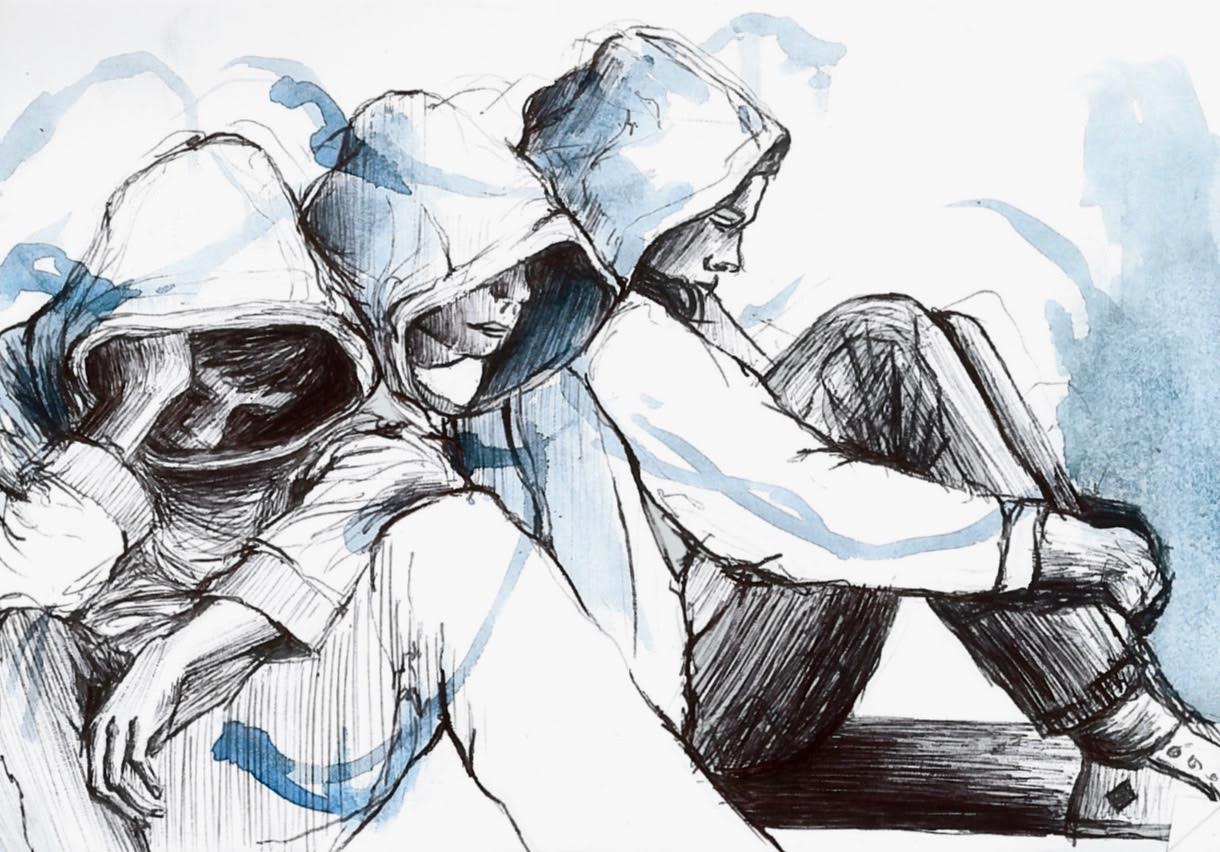I’m a first-year McGill student, and I’m lonely.
I did all the right things. I lived in residence. I participated in Arts Frosh. I joined a few clubs. But nothing seemed to work. None of my relationships could bridge the canyon-sized gap between acquaintance and friend.
Everyone else, it appeared, had found their social groups: Engineers were drinking at Blues Pub, Management students were drinking at 4 à 7, and science students were bonding over shared complaints about required classes. The Thursday-through-Saturday night-clubbing expeditions had begun. And, in the middle of it all, I felt entirely out of place. Specifically, I felt out of place for being out of place—as if I was the only new student who couldn’t find his people.
But, in reality, I was not. Searching the word “lonely” on the McGill subreddit returns some bleak results: “Why the McGill experience is so lonely?” “Lonely at mcgill, have no friends, failing most classes.” “Lonely, and alone in mtl this summer. Is there any way I can pay people to hang out with me?”
As the year went on, and I started to make deeper connections, I found that many other McGill students shared my experience of feeling alone in their loneliness. This shouldn’t come as a surprise: We all accept occasional loneliness as a potential fact of life. Despite this, university marketing campaigns that advertise idyllic, predictable social lives have convinced students to think of campuses as an exception.
The freshman blues phenomenon isn’t exclusive to McGill. A 2016 study by the American College Health Association found that around 66 per cent of Canadian post-secondary students reported feeling “very lonely” within the past 12 months. Still, I can’t shake the sense that McGill is an especially lonely place—and I think I know why.
In her recent book The Perils of “Privilege”: Why Injustice Can’t Be Solved …, author Phoebe Maltz Bovy observes how so-called “elite” universities have begun advertising themselves as not just schools, but as comprehensive, once-in-a-lifetime experiences.
“What these schools are promising is sort of … everything,” Maltz Bovy wrote. “Everything in the sense of, every minute of the day will be spent with people who were, like yourself, handpicked for all-around perfection, as well as for serving some kind of preordained role in the impeccably balanced community.”
McGill is certainly guilty of idealistic advertising. Its slick admissions website promises: “From your first day on campus, you’ll quickly realize that you’re among kindred spirits.” Even better: “This is a place where creativity is contagious, and where there is always someone who shares your interests, no matter what they are.” McGill’s targeting of heart over head promises an all-inclusive experience. Unfortunately for would-be McGillians, it’s impossible to guarantee someone the intangible feeling of belonging.
Marketing a university as an unrelentingly blissful “experience” creates unrealistically high expectations of what life at university will be. In truth, university life is just that—life. It’s filled with the same quotidian boredoms and inconveniences as every other existence, and the same loneliness, too. But when students’ experiences fall short of the admissions-website hype, what are they to make of that? How could they not assume they’re the odd-ones-out?
This is far from the only consequence of the pernicious “best years of your life” myth. There’s no chapter in the experience narrative in which the protagonist realizes they chose the wrong school and transfers, nor one in which they drop their course load to part-time for a year (or, God forbid, withdraw) to take a needed mental health break. What many students forget is that neither of these choices are bad. Sometimes, they’re the best decisions a student can make. However, their exclusion from the advertised “experience” advertising narrative gives students the impression that such choices are not viable.
The loneliness epidemic comes as much from students’ high expectations as their bleak realities. McGill can’t offer students an effortless glide into a tailor-made social life, nor can any other university. For a lot of people, socializing is hard. Even for those lucky enough not to find chit-chat anxiety-provoking, it still demands a degree of energy. When energy is in short supply, as it’s gobbled up by exams, papers, extracurriculars, and internship applications, it’s no wonder that it’s so hard to make meaningful connections.
To those reading this who find themselves without a brochure-cover-ready group of friends—you may be lonely, but you are not alone in being so. As Billy Joel once sang, “Yes, they’re sharing a drink they call loneliness / But it’s better than drinking alone.”









It was very brave of you to publish this. Thank you for honouring us with your story. Namaste, God bless you, and good luck.
like the last quote, but even if this we are in it together.